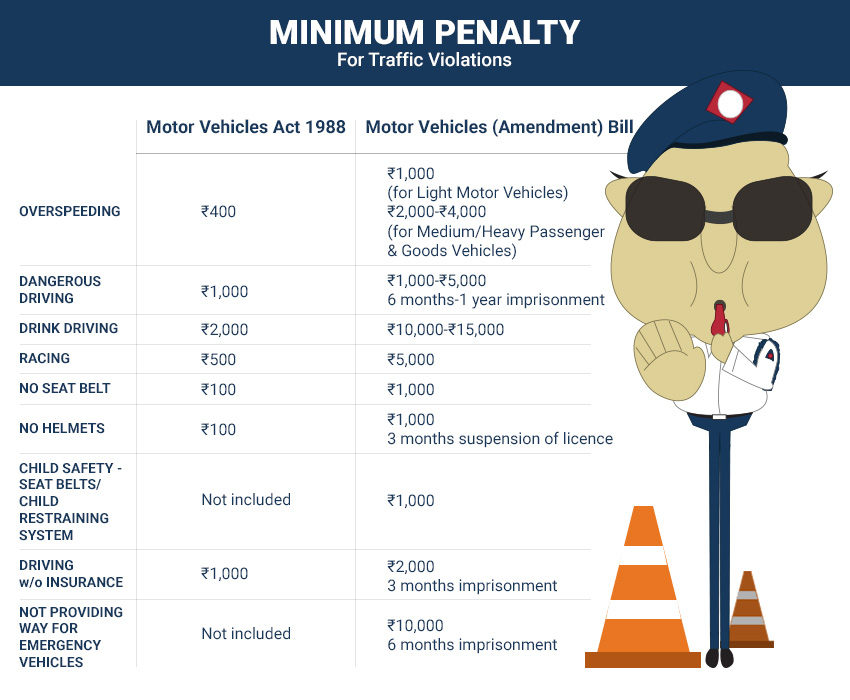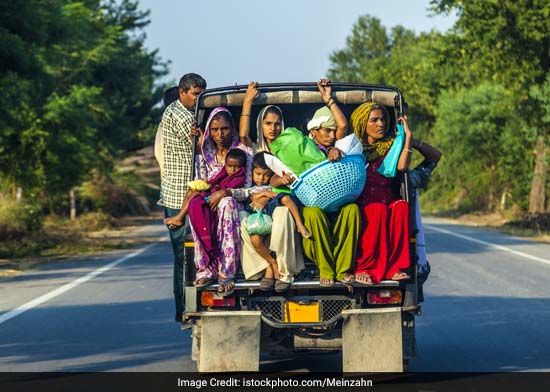
Aadhaar Checks, Tougher Fines: A Guide To The New Motor Vehicles Bill
Highlights
- A bill amending the Motor Vehicles Act was passed by the Lok Sabha
- It increases fines and penalties related to traffic violations
- Among other things, it digitises the licencing system
New Delhi: India will soon have an updated Motor Vehicles Act which seeks to make the country’s roads safer by toughening penalties for traffic violators, cracking down on the practice of holding multiple licences by making it mandatory to link Aahaar numbers, and holding those responsible for faulty road design and construction accountable, among other things. These provisions are a part of the Motor Vehicles (Amendment) Bill which was unanimously passed by the Lok Sabha on Monday (April 10).
Read More: Lok Sabha Passes The Motor Vehicles (Amendment) Bill with Tougher Penalties And E-Licencing
Aadhaar-Based Verification
Under the Bill, the system for recording and issuing driving licences will be completely digitised. This means that learner’s licences can be applied for online and will be issued only once an applicant’s identity is verified through their Aadhaar number. The idea is to streamline the existing licensing system which permitted individuals to hold multiple licenses from different states.
Also Read: 30% Of Licences In India Are Bogus: Union Minister For Road Transport And Highways Nitin Gadkari
Greater Accountability
The Bill also increases accountability on several fronts—faulty road design, construction and maintenance, faulty vehicle manufacturing, offences by juveniles and child safety.

Faulty Road Design and Construction
The initial draft of the bill which was introduced on the floor of the Lok Sabha in August 2016 did not make any mention of holding engineers, contractors and other involved in the process of designing, constructing and maintaining roads accountable for accidents linked to flaws in road infrastructure. However, the version which has been passed sets a fine of ₹1 lakh for the failure to comply with standards for road design, construction and maintenance.
What makes this amendment critical is that, according to the SaveLIFE Foundation, over 10,000 of the road accidents in 2015 could be directly linked to faulty roads.
Also Read: Road Design: What India’s Urban Centres Can Do To Improve Road Safety
Recall of Vehicles
Similarly, India does not have any provision related to vehicular safety or for the recall of unsafe vehicles at the moment. Seeking to rectify this, the Amendment Bill empowers the Central Government to recall vehicles which do not meet standards and provides for the establishment of testing agencies to issuing certificates of approval.
Also Read: The Road To Safety: The Journey For Better Road Safety Legislation In India
Other than this, the Bill takes a tough stance on violations like drink driving, dangerous driving, not wearing seat belts or helmets, etc. It increases penalties for different traffic violations across the board. Additionally, to ensure that these keep up with inflation and continue to act as effective deterrents in the future, the Bill also provides that these fines be automatically increased by 10 per cent every April 1. – very interesting point. Put this in excerpt
Here’s a look at some of the increased fines and penalties.

Also Read: Would Higher Traffic fines Lead To Safer Driving In India?
Juvenile Justice
For traffic offences committed by juveniles, the law will now hold parents or guardians responsible and allow the trial of the juvenile under the Juvenile Justice Act. Guardians and vehicle owners can face 3 years of imprisonment along with a ₹25,000 fine.
Road Accidents
In the case of road accidents, the Bill provides for the imprisonment of up to 6 months and a fine of ₹5,000 for the first offence. Subsequent offenders can face a year in prison and a ₹10,000 fine.
Good Samaritans and Greater Compensation for Accident Victims
To improve response to road accidents, the Motor Vehicles (Amendment) Bill also includes the Good Samaritan Guidelines in their entirety, providing legal protection to people who come forward to help victims of road accidents.
The Bill also increases the compensation provided to the families of road accident victims. If an individual dies in a hit and run case, the central government is required to provide ₹2 lakh or more to their family. Under the 1988 Act, the compensation provided for such cases is ₹25,000.
Read More: 10 Things To Know About The Motor Vehicles (Amendment) Bill 2016
The Motor Vehicles (Amendment) Bill largely reads as a serious commitment to improving road safety in India. Asides from increased penalties, it establishes a national Road Safety Board to advise to the Union as well as State Government on all aspects of road safety and traffic management. All this, hopefully, should translate into safer roads.
Also Read: How Effective Will The Motor Vehicles (Amendment) Bill Be In Making Indian Roads Safer?
The Bill has now been sent to the Rajya Sabha.



















nice information